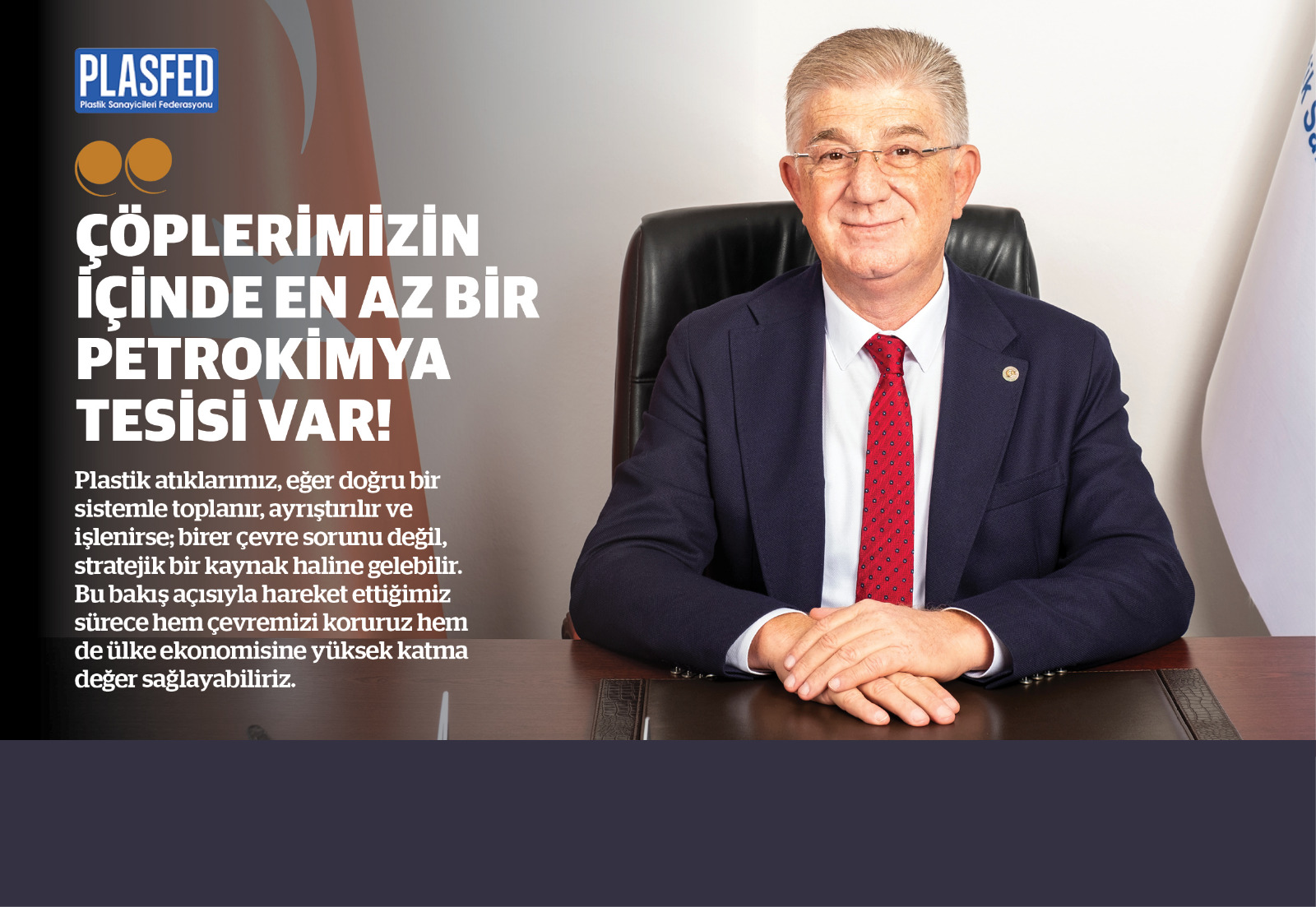
Our plastic waste, if collected, sorted, and processed correctly, can become a strategic resource rather than an environmental issue. By adopting this perspective, we protect our environment while also providing high added value to the national economy.
Countries around the world fall into two categories: those that view waste as an 'energy source and raw material' and those that see it merely as 'garbage'. Unfortunately, we find ourselves among the latter. This is why we are discussing a long-standing issue of plastic waste, which developed countries addressed years ago, under the guise of 'environmentalism'.
However, plastic is one of the most environmentally friendly inventions of the 20th century. Plastic materials are present in every area and moment of our lives, and they can often be recycled multiple times. At the end of their life cycle, they have at least as much energy value as fuel oil.
In Turkey, per capita plastic consumption ranges between 70-80 kg, while in Germany, it exceeds 110 kg. Can you see any random plastic found thrown into the seas, rivers, streets, or communal living spaces in Germany? Of course not.
For these reasons, we need to understand and communicate that raising awareness of recycling in today's world is much more than an 'environmental issue'; it is a 'development issue'.
Especially in countries like Turkey, where energy and raw material resources are limited, the efficient use of resources is not a choice but a necessity.
Recycling could lead to new petrochemical investments
From the perspective of our plastic industry, this necessity also presents an important opportunity as significant as establishing a petrochemical facility through recycling.
Our country is currently the second largest plastic producer in Europe and the sixth largest in the world. However, almost all of this production relies on imported petrochemical raw materials. The contribution of domestic production, which was 24% in 2008, has now fallen to 7%. This situation not only restricts the competitiveness of our industry but also increases its dependency on foreign materials.
Establishing a traditional petrochemical facility, especially one based on integration, requires billions of dollars in investment.
However, we have a 'raw material source' at hand: Our plastic waste.
When plastic waste is recovered through proper sorting, classification, and technological processing, it can turn into both raw material and energy. In other words, if we utilize this potential correctly, it is possible to see a new petrochemical facility within our garbage.
Source-separation and public strategies
Of course, the realization of this recycling is not possible solely through the efforts of us industrialists or raw material-producing companies. The government needs to develop supportive policies in this process, encourage source-separation in waste management, and clarify quality standards for recycled materials.
A perspective that sees waste as a source
If our plastic waste is collected, sorted, and processed correctly, it can become a strategic resource rather than just an environmental problem. As long as we maintain this perspective, we can protect our environment and also add high value to our national economy.
The time has come to finance and operate our domestic petrochemical investment with our own waste.
Instead of trying to find or establish facilities from scratch, we must realize that our source is already at hand.
Children will educate
Turkey urgently needs a national strategy for waste separation, recycling, and ultimately energy production. The first step in implementing this strategy should be taken from kindergartens. It becomes increasingly difficult for children reaching adolescence to have an awareness of waste separation. We need a management model where children educate their parents instead of parents educating their children on this subject. Of course, the most crucial task also falls to the municipalities.
Translated by Artificial Intelligence
